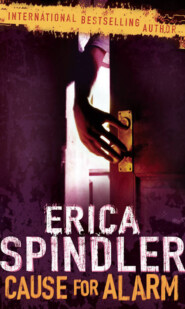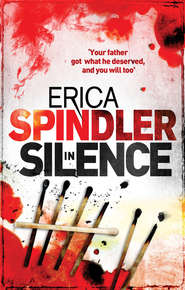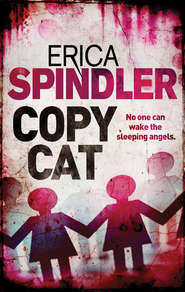По всем вопросам обращайтесь на: info@litportal.ru
(©) 2003-2024.
✖
All Fall Down
Автор
Год написания книги
2019
Настройки чтения
Размер шрифта
Высота строк
Поля
“He has a gun?”
Mia blanched. “He … I … I don’t know … I meant, I imagined him getting a gun. I was so afraid, Mellie!”
Melanie glanced at the bathroom door. The white paint was marred by ugly, black heel marks. She turned back to her sister. “Have you called the police?”
“What?”
“The police. Have you called them?” “No, I—”
“That’s okay. We can do it now. I’ll get the phone.” She retrieved it from the bathroom floor and brought it to Mia. She held it out.
Mia shrank back and Melanie frowned. “You have to do this, Mia. You have to protect yourself. You have to stop him.”
“I can’t.”
“Mia—”
“I couldn’t bear for everyone to know!” She covered her face with her hands. “I’m so ashamed.”
Melanie put the phone aside and took her sister’s hands away from her face. They were cold, trembling. “Look at me, Mia. You have nothing to be ashamed of. He’s the one who’ll be embarrassed by this. He’s the one who—”
“He’ll get off. You know he will. He’ll deny the whole thing, and everyone will believe him. I’ll be labeled the pathetic, attention-starved wife.”
“You have proof. Look at this place, the heel marks, the—” Even as she said the words, she knew that her sister had little beside bruises that were nearly two weeks old. Not even a 911 call.
“You see that I’m right, don’t you?” Mia shook her head, tears slipping down her cheeks. “It’ll be my word against his. Who do you think everyone will believe?”
Melanie had faced a similar prejudice when she left Stan, though he had never physically abused her. It had infuriated her then, it did now. She was sick and tired of a system that allowed the rich and powerful to run roughshod over those more vulnerable. They should be held accountable. Someone should make them pay.
Mia hung her head. “It’s my fault. I questioned him about where he was going. I should have known better. I should have left well enough alone.”
“Don’t do that, Mia. That’s a victim talking. It’s bullshit.” Melanie caught Mia’s shoulders and shook her lightly. “He’s your husband. You had every reason, every right, to question him.”
“But I—”
“No! You will not become a victim. I will not allow it, do you hear me? You’ve come too far.” She shook her again, forcing her to meet her eyes. “You have to leave him, Mia. You have to. It’s the only way.”
Mia started to cry again, nodding her head. “You’re right, Mellie. But I don’t want to. I want my marriage. The one I thought I had. The one I dreamed of.”
Melanie’s eyes filled with tears of sympathy. And of understanding. She drew her sister back into her arms. “I know, sweetie. I want the same thing. I want what I thought I had. But it’s not going to happen. You have to leave him before he really hurts you.”
12
Melanie stayed with her sister until dawn. After straightening up the house, they curled up together on the king-size bed, sipping Irish creams and remembering the good times from their childhood, recalling friends they had known and fun places they had lived. Before long, Mia had nodded off.
Even after her sister had been soundly asleep, Melanie had agonized over leaving her. But she’d been forced to. It had been obvious Boyd wasn’t going to return and she had hoped to get in an hour of shut-eye before having to get ready for work. Instead, she had lain awake, staring at the ceiling and worrying about her sister.
Though reassured by Mia’s promise to leave her husband, Melanie wasn’t optimistic she would keep her word. It wasn’t uncommon for women caught in abusive relationships to marshal their personal reserves during a crisis, only to crumble as soon as the crisis passed. Or the man apologized and promised to do better.
Boyd had to be held accountable, Melanie had decided as she stood under the shower’s stinging spray. He had to know his behavior was being monitored and that it wouldn’t be tolerated. She wanted him to know that she wouldn’t tolerate it.
She had a plan.
“Morning, Bobby,” she called to her partner as she arrived at headquarters later that morning.
“Morning, Mel.” Her eternally youthful partner looked up from the sports section of the Charlotte Observer, and his eyebrows shot up. “Looking good today, Mel-babe. Up all night with a sick kid?”
“In a way.” She dropped her purse beside her desk and headed for the coffeepot.
He unfolded his lanky frame, grabbed his empty cup and followed her. He held out the cup, then frowned. “Wait a minute, I thought Casey was in Orlando with his dad.”
“He is. Different kid.” She filled him in on how she had spent the previous evening, though she didn’t elaborate on her sister’s troubles. “I thought we might pay the good doctor an unofficial official call.”
Bobby grinned. “And shake him up a bit.” “You got it.” “I’m in.”
Melanie added powdered creamer to her coffee and sipped. “Anything big happen overnight?”
“Not unless you call the high school being rolled big.” He grinned. “Oh, and old Mrs. Grady reported a masked bandit in her trash again.”
Melanie rolled her eyes. Her brush with real detective work had made WPD business-as-usual seem more pointless than it had before. “Raccoon?”
“Irritating little bastards, aren’t they? She demanded immediate action.”
“Poor Will.” Melanie imagined pudgy, baby-faced Will Pepperman, the officer in charge of the night shift, dispatching a cruiser to the scene of the crime. No doubt he had gotten an earful from the lucky patrolman who had answered that call. Better him, though, than Mrs. Grady. Shrill would be a kind way to describe her voice.
They crossed to Bobby’s desk and she perched on the corner. “How about the phone banks? Anything come in?”
“Anything promising? No. Anything at all? Yes.” He handed her a printout. Melanie skimmed her gaze down the pages, a ball of frustration forming in the pit of her gut. “There must be a hundred calls here.”
“A hundred and twelve. But who’s counting?”
She made a sound of resignation. “Top or bottom?” she asked, referring to which half of the list he wanted.
“Sorry to ruin your day, but what you’re holding is the top half of the list.” She groaned and he made a sound of sympathy. “It does suck, doesn’t it?”
“Royally.” She met his eyes, wondering not for the first time how her partner remained so upbeat about the job. She decided to ask him. “You’ve been with the WPD ten years, how do you not let all this inconsequential … busywork get to you?”
He was quiet for a moment. When he answered, his tone was measured, for once, one hundred percent serious. “I’m thirty-eight years old, Melanie. I have four kids and a wife to support and only a two-year degree from a junior college. I make as much here as a CMPD guy at the same rank, get to carry a gun and look like a hotshot hero to my kids, but at the end of the day I know old Mrs. Grady’s masked bandit isn’t going to make my wife a widow and my kids fatherless. And that counts for a lot with me.”
Melanie looked at her partner with newfound respect. And also with a modicum of guilt—she should feel the same way because of Casey. But she didn’t. Ambition, longing for real police work, burned in the pit of her gut. Some days it felt as if the blaze was going to consume her whole.
She forced a smile and held up her half of the list. “Okay, Mr. Sunshine, paint this a happy shade of rose for me. Quick, while I still remember how to smile.”
“My pleasure.” He tapped the printout. “The fact is, about a third of this list can be eliminated as outright fabrications.”
She arched her eyebrows. “That’s supposed to make me smile?”
“Give me a minute. Another third,” he continued, “can be eliminated simply—a phone call, a computer check, stuff like that.”











